Subtraction skills Subtraction Worksheets for Ages 3-8
7 filtered results
-
From - To
Enhance your child's understanding of subtraction with our engaging worksheets designed for ages 3-8. Our thoughtfully crafted subtraction skills worksheets introduce foundational concepts through fun activities, helping young learners master the basics. From interactive exercises to visual aids, each worksheet makes learning subtraction enjoyable and effective. Perfect for home or classroom use, these resources support children in developing critical math skills while boosting their confidence. Designed to cater to varying learning levels, our worksheets ensure that your child progresses at their own pace. Explore our collection today and make subtraction a fun part of your child's early education journey!
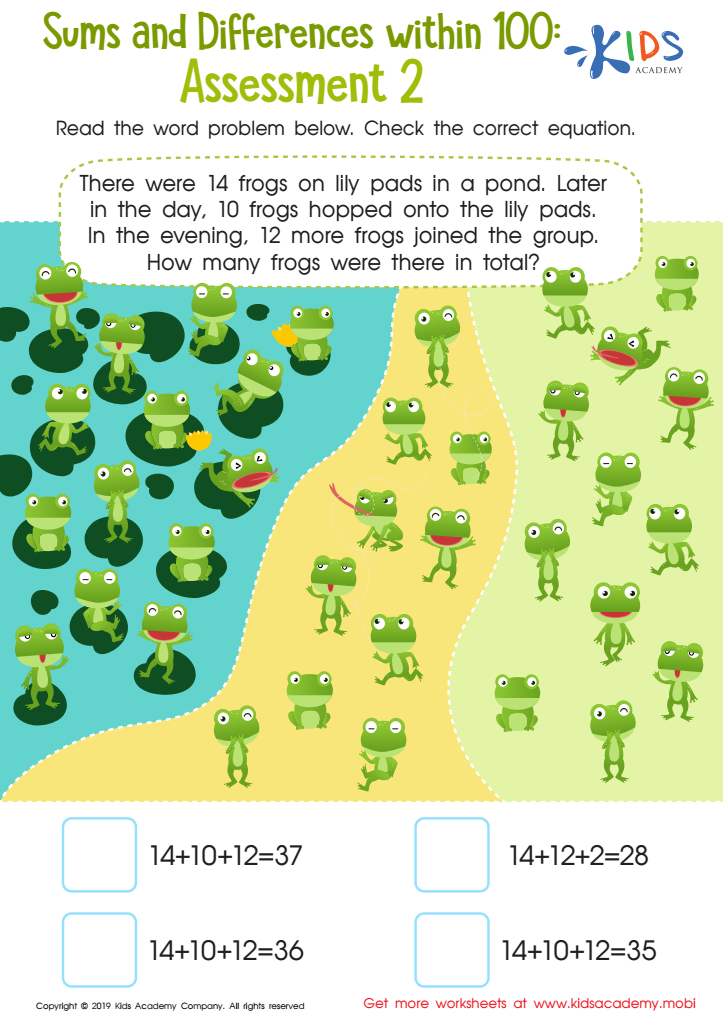

Sums and Differences Within 1 - Assessment 2 Worksheet
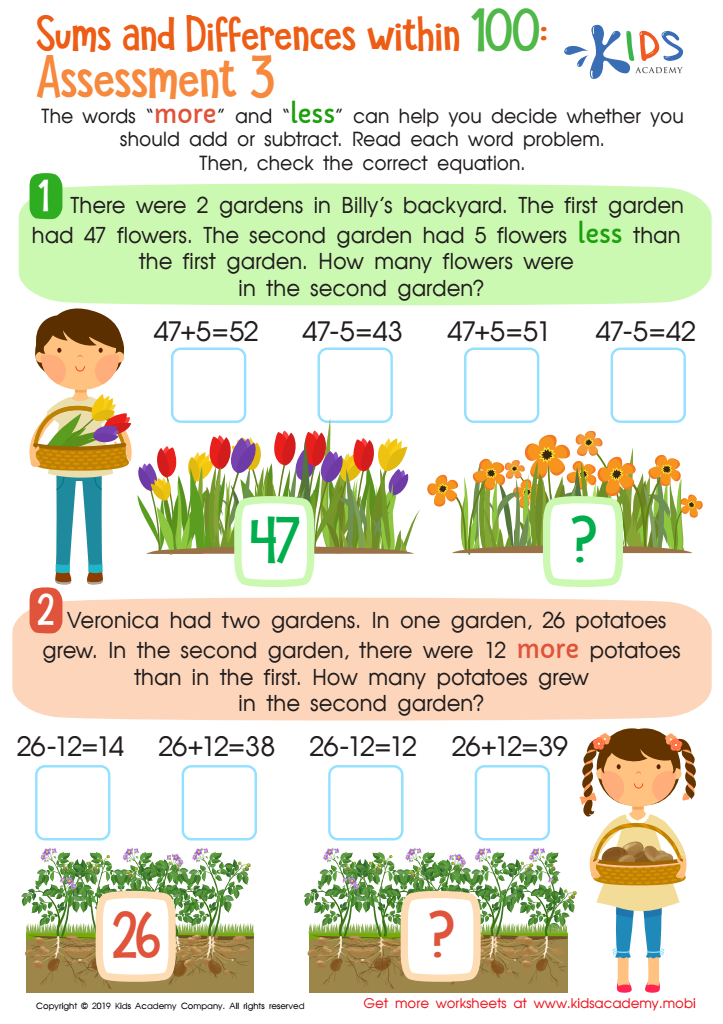

Sums and Differences Within 1 - Assessment 3 Worksheet
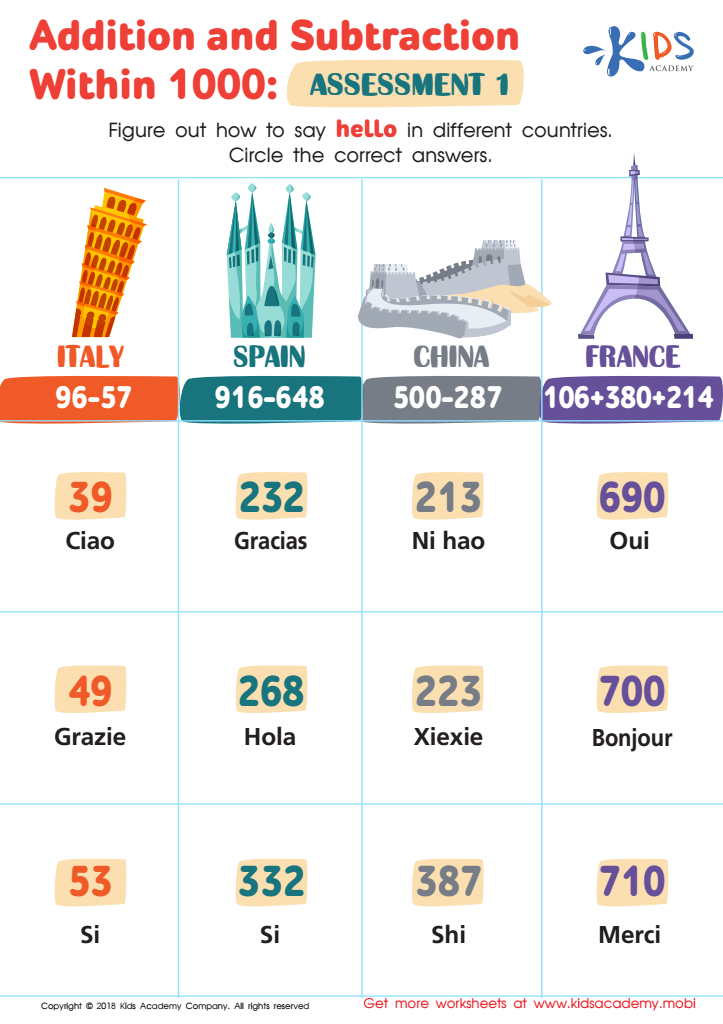

Addition and Subtraction Within 1000: Assessment 1 Worksheet
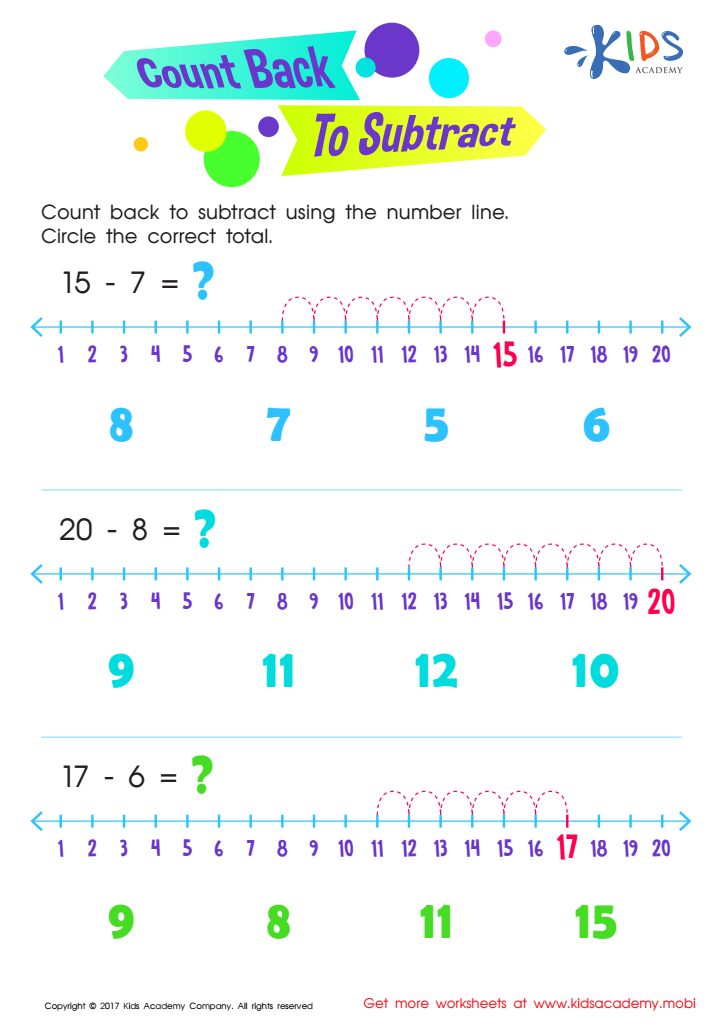

Count Back to Subtract Substraction Worksheet
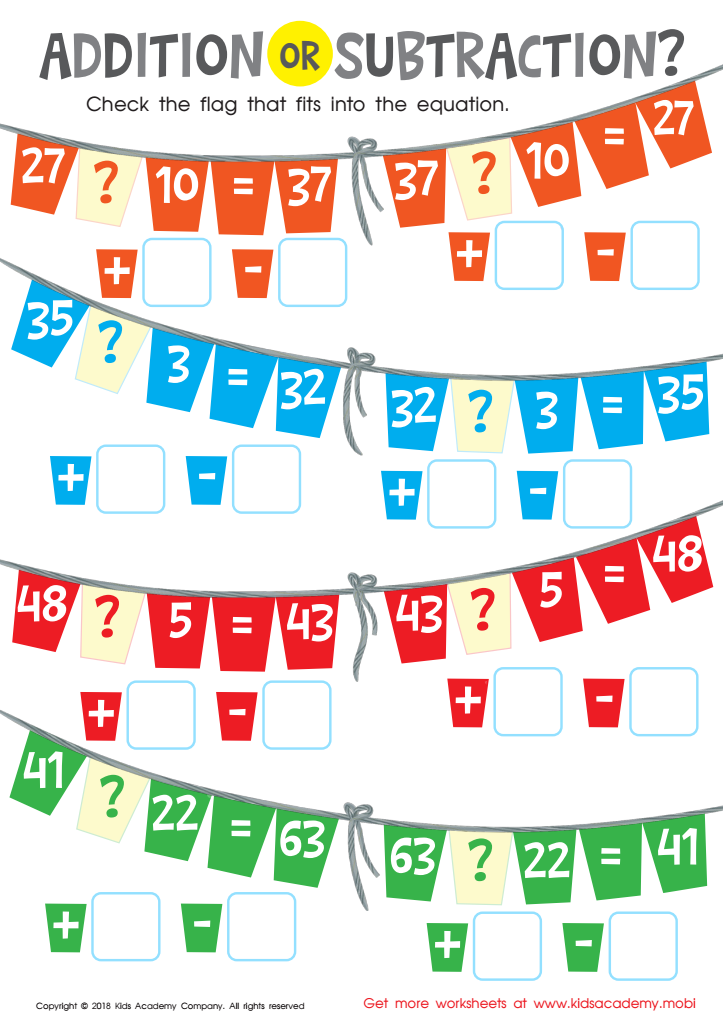

Addition or Subtraction? Worksheet
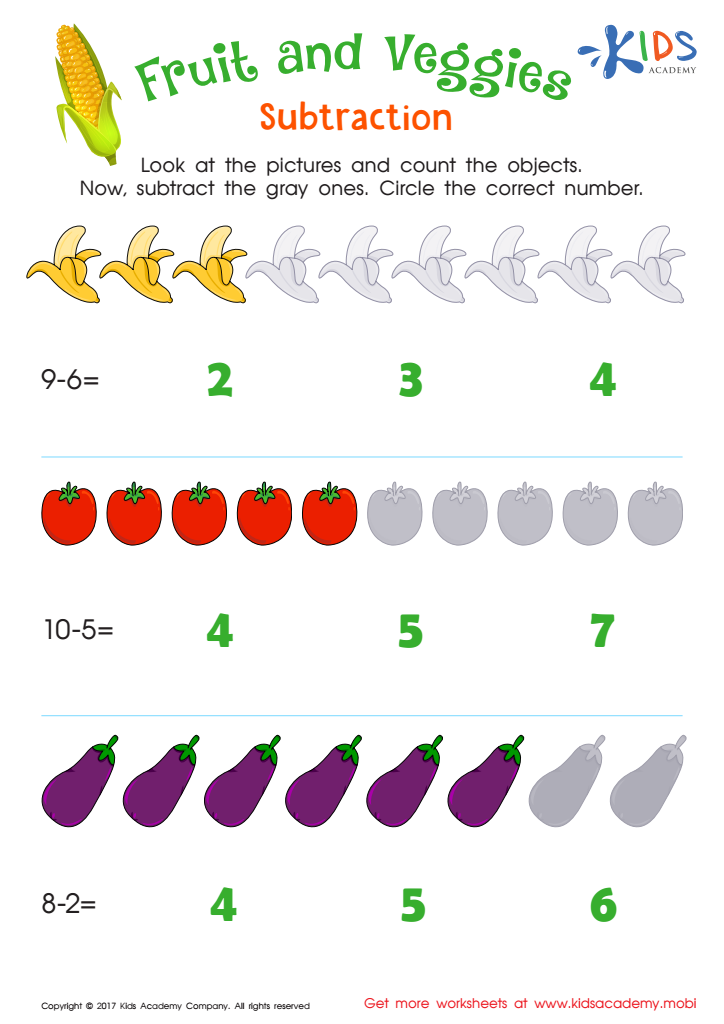

Fruit and Veggies Subtraction Worksheet
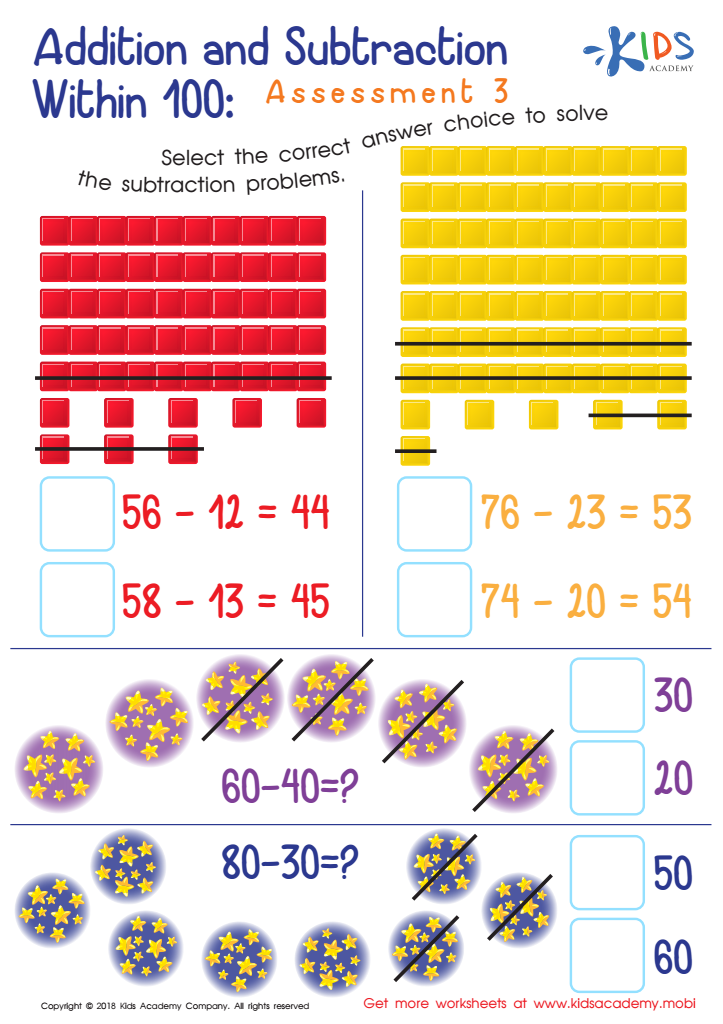

Addition and Subtraction Within 1: Assessment 3 Worksheet
Subtraction skills are essential for children aged 3-8 as they lay the foundation for their mathematical understanding and overall cognitive development. At this early age, children are building critical thinking and problem-solving abilities. Subtraction teaches them how to understand quantities, compare numbers, and recognize patterns, fostering analytical skills that extend beyond math.
Moreover, subtraction is not just an isolated skill—it interconnects with various aspects of learning, including counting, number recognition, and addition. Mastery of subtraction at this early stage helps children develop a sense of confidence in their mathematical abilities, which can encourage a positive attitude towards learning in general.
Parents and teachers should care about these skills because they are crucial for academic success. As students progress to more advanced mathematical concepts, a solid grasp of subtraction will facilitate better understanding of topics like addition, multiplication, and division. Additionally, everyday life situations often require subtraction skills, such as sharing, budgeting, and measuring, reinforcing the importance of these skills beyond the classroom. By fostering subtraction skills in young children, parents and teachers are equipping them not just for school but for practical problem-solving in their daily lives.
 Assign to My Students
Assign to My Students

















